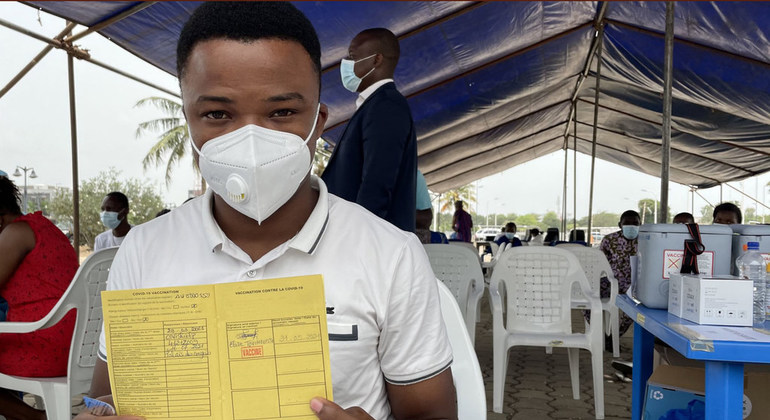
Dr Rogério Pinto de Sá Gaspar, Director for Regulation and Prequalification, was responding to a journalist’s question regarding links between the vaccine and cerebral venous sinus thrombosis, a rare blood clotting syndrome.
The European Medicines Agency (EMA) on Tuesday denied that it had established any link, following reports that one of its experts stated there was a connection.
Expert meetings underway
Meanwhile, an EMA committee that monitors the safety of medicines has been meeting to assess the data, which is also being reviewed by a regulatory body in the United Kingdom. WHO is following both proceedings.
“What we can say is that the appraisal that we have for the moment, and this is under consideration by the experts, is that the benefit risk assessment for the vaccine is still largely positive”, said Dr Pinto de Sá Gaspar.
He reported that “thrombolytic events” are rare, and are now being categorized in terms of their distribution within the population.
“For the time being, there is no evidence that the benefit risk assessment for the vaccine needs to be changed”, he added. “And we know from the data coming from countries like the UK and others, that the benefits are really important in terms of reduction of the mortality of populations that are being vaccinated.”
WHO’s Global Advisory Committee on Vaccine Safety is due to meet on Wednesday, which also will look at the data, with a conclusion expected later in the week.
Stigma and virus variants
WHO continues to work with a group of scientists worldwide to develop nomenclature for variants of the new coronavirus that causes COVID-19.
Many people, including health experts, have been referring to the variants by the countries in which they were first detected, something the UN agency wants to change.
“We need to make sure that any of the names that are used do not further stigmatize a person, or a last name, or a location, inadvertently”, said Dr Maria Van Kerhove, WHO technical lead on COVID-19, responding to a question from a South African journalist.
“There should be no stigma associated with these viruses being detected, and unfortunately we still see that happening.”
Currently there are three variants: B117, first identified in the UK; B 1.351, which was first identified in South Africa, and P1, a variant first detected in Japan but circulating in Brazil.